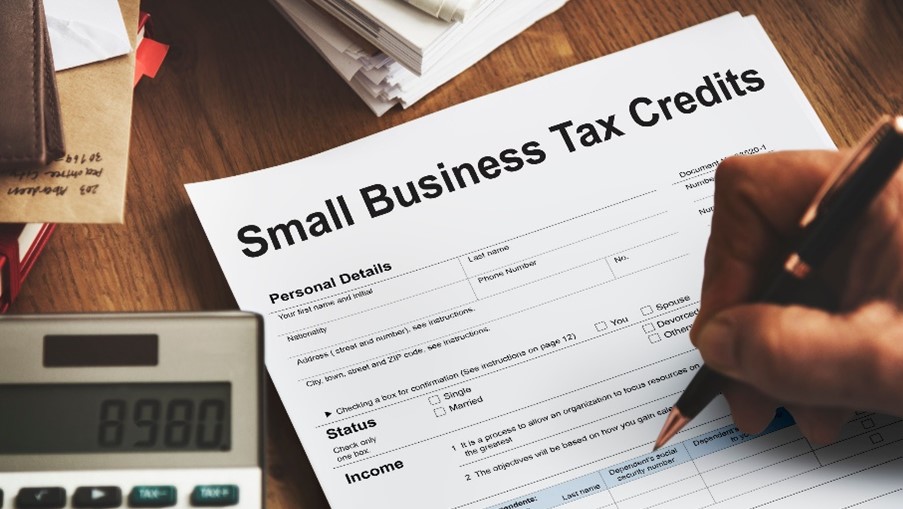Antoinece Robin Boyd of Cleveland is an accountant with over 20 years’ experience working with small businesses, corporations, and entertainment companies, both large and small. In the following article, Robin Boyd discusses tax preparation for small businesses, and provides 7 tips to prepare for filing season.
Business tax preparation, especially for small business owners who didn't set out to become professional accountants, is complex. But those who follow proper accounting practices always find tax season easier.
Robin Boyd of Cleveland says that contrary to popular belief, tax planning shouldn't be an annual occurrence just before filing. Instead, it should be an ongoing procedure in the background of daily business operations.
Robin Boyd on How Taxes Impact Small Businesses
Every US-based small business owner must pay taxes. The exact amount varies by company structure and state, but they are arguably one of the biggest costs. In fact, the average small business pays a
tax rate of 19.8% on its income.
But they aren't just one of the largest expenses; they're also one of the most important. Antoinece Robin Boyd says that small business owners who file their taxes inaccurately, late, or fail to do them altogether face fines and even criminal prosecution.
Thankfully, owners can get through tax season fairly effortlessly by following seven top preparation tips.
The Best 7 Suggestions to Properly Prepare for Small Business Tax Season
#1 Understand Financial Jargon
The accounting world involves terminology unseen elsewhere. Small business owners who take the time to learn the most common phrases always find filing easier.
Antoinece Robin Boyd says that a few general balance sheet terms all entrepreneurs should know are:
- Revenue — The amount earned through product sales.
- Cost of goods sold (COGS) — The cost of making the products.
- Net sales — The total profit made once all expenses are deducted from total revenue.
- Gross profit — The money left after subtracting COGS from revenue.
#2 Keep Accurate Records
According to the brains at
LegalZoom, maintaining organized records is the primary way to ensure business owners sail smoothly through tax season. While many see it as a chore, they are always thankful that they put in the extra effort when filing time occurs.
Antoinece Robin Boyd states that accurate records provide a consistent snapshot of company finances, indicating profitable areas and those falling short.
When it's time to file, business owners save time and money after holding accurate records all year. They keep the deadline panic away, avoiding the mad receipt-finding dash.
#3 Proper Small Business Classification
Robin Boyd of Cleveland reports that small business owners who incorrectly classify their business often overpay taxes.
Companies can be classified in the following ways:
- C Corporation
- S Corporation
- Limited Liability Company
- Limited Liability Partnership
- Single Member LLC
- Sole Proprietor
The chosen classification impacts how much tax the business pays.
Most owners find it helpful to talk to a professional accountant and/or attorney to determine how they should classify their business.

 #4 Separate Personal from Business Expenses
#4 Separate Personal from Business Expenses
The IRS doesn't take kindly to finding personal expenses mixed into business outgoings. Antoinece Robin Boyd states commingled money sparks the IRS to take a closer look at business owners' personal accounts.
As a general rule, owners should have a separate bank account for business expenses to avoid confusion and ambiguity.
#5 Put Cash Aside for Payroll Taxes
Small business owners who employ workers must report, withhold, and fund employment taxes.
The IRS imposes the following three types of tax on a per-employee basis:
- Social security tax — Employers pay 6.2% on half an employee's earnings.
- Federal income tax — The percentage changes depending on personal expenses and salary.
- Medicare tax — Employers pay 1.46% on half an employee's wages.
Nowadays, most entrepreneurs choose to use payroll apps to make this process easier and avoid miscalculations.
#6 Know What to Write Off
The lower a business' profitability, the less tax it pays. Small business owners can take advantage of tax-deductible expenses to sensibly (and legally) reduce their profits explains Robin Boyd of Cleveland.
Companies can write off any expenses meeting this criterion:
- The expense is ordinary, meaning it's often used by other businesses in the same industry.
- The expense is necessary, meaning it assists business growth or survival.
#7 Hire the Right Tax Professional
Since small business owners don't usually get into business to become financial professionals, hiring an accountant can be essential to the company's financial well-being.
Antoinece Robin Boyd states that those who work alongside an accountant throughout the year prove beneficial because they have an intimate understanding of credits and deductions, ensuring businesses save as much money as possible.
Moreover, accountants can help choose business structures, come up with tax strategies, and perform bookkeeping for accurate records.

 #4 Separate Personal from Business Expenses
#4 Separate Personal from Business Expenses